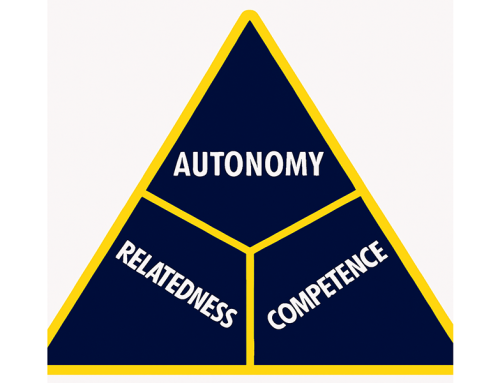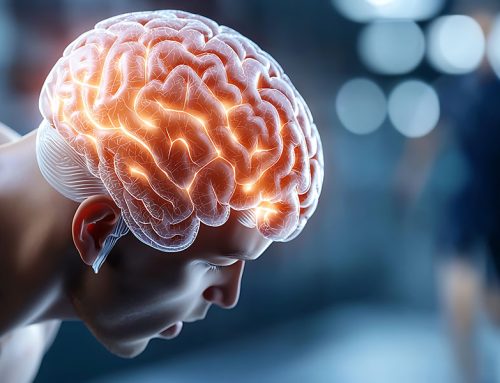Bingeing, emotional eating, and mindless snacking are major causes of weight loss relapse. But why does it happen? In a study published in the American Journal Of Clinical Nutrition, Susan Kayman and colleagues set out to discover the difference between women who took off weight and kept it off successfully (maintainers), and those who took off weight but eventually regained it all (relapsers). They found many differences between relapsers and successful maintainers, but one stood out like a sore thumb…
 Relapsers were emotional eaters who lacked skills to respond to and cope with stress and unexpected problems.
Relapsers were emotional eaters who lacked skills to respond to and cope with stress and unexpected problems.
While almost all of the women reported stressful issues or problems, there were major differences in the way the relapsers and maintainers coped with their problems.
Very few relapsers used problem-solving or confrontive ways of coping with their problems as compared with maintainers.
Instead, they were more likely to use emotion-focusedor escape/avoidance behaviors for coping such as eatingmore, sleeping more or just wishing the problem wouldgo away.
Relapsers reported using food to make themselvesfeel better when they were upset. They also attributedweight gain to unexpected or unpredictable stressfullife events.
Maintainers, by contrast, confronted their problemsdirectly and looked for alternative ways to cope withthem (other than eating)
These included relaxation techniques, meditation, exercise,focusing on productive work, seeking social support, getting professional help, or talking out theirfeelings with other people they trusted.
This by the way, confirms previous research in the area of addiction recovery which found that a person who has made a successful behavior change will return to a previous negative pattern if a stressful situation occurs and no coping skills have been developed to deal with it.
Another big difference between maintainers and relapsers was conscious awareness (or lack of it)
70% of relapsers ate unconsciously in response to emotions.
Maintainers, on the other hand, were vigilant and conscious of EVERYthing:
- They were conscious of the quantity and type of food they ate
- They were conscious about the amount of activity that they needed personally to maintain their weight
- They consciously worked to “keep in shape” after they reached their initial goal
- They were conscious that they felt uncomfortable in their clothes after they gained even a little weight such as a few pounds after a vacation
- They intentionally wore close-fitting clothes to keep themselves aware of their bodies, which prompted them to exercise more eat less if their clothes felt tighter.
From these findings emerge two of the very first steps that are absolutely necessary for you to end emotional eating and prevent diet relapse:
1. Develop greater conscious awareness
2. Develop alternative behaviors and coping mechanisms for dealing with stress and emotions
It takes courage to directly confront your problems and strength to overcome them, but you can’t even begin to solve a problem unless you are aware you have one. It all beginswith AWAREness.
One of the best ways to increase conscious awareness of your eating habits is to keep a nutrition diary or do electronic food tracking at least once in your life for a period of at least 4-12 weeks.
Many people are catching on, as reflected in the popularity of sites like My Fitness Pal, which let you log in your daily food intake, while others keep extensive written journals.
People who are struggling with relapse and weight regain, but who refuse to admit that calories are important, who find keeping journals to be too much like work, or who don’t at least find some other way to raise their awareness about what and how much they are eating, are likely to continue to struggle.
Your friend and coach,
Tom Venuto
www.BurnTheFatInnerCircle.com
PS As you can see, based on research in both obesity and psychology journals, and as your own instincts probably have already told you, emotional eating is not a “women’s tabloid magazine” type of topic that can just be brushed over lightly. It is very real problem, and it affect smen as well.
Fortunately, there are numerous real solutions for ending emotional eating. You now have two of the first and most important steps.
If you’d like to learn more, I highly recommend checking out the book, Five Principles for Burning Fat, Building Lean Muscle, Ending Emotional Eating, and Maintaining Your Perfect Weight.






Tom,This is a great article. I passed it along to all of my girlfriends to see since a lot of the same thing was going on with my own friends.Thanks!Corina
I think that people don’t give this emotional eating idea as much credit as they should, so I’m glad to see you writing about it in such an honest and scientific way. Thanks for always providing good, true information Tom!
Tom, once again, a great article! I have also forwarded to my work friends! I have always promoted food journalling and since I am preparing to compete, it has become more important! I, too have struggled with emotional eating – the food journal totally kept me on track!
Hi Tom,Excellent article. You just began following me on Twitter, and my program for healthy living and weight loss is very much about consciousness. Your ideas are very much like mine.However, I’m a Clinical Hypnotherapist my approach with clients is through that lens. In addition, I help my clients…when possible…connect with their Spirit Guides or inner wisdom.I’m featuring my client, Susan Miller, on my website:www.whyweighttolose.com with on-going videos of her progres. Just launched the website. Check it out.Nice connecting and sharing information.Jennifer
Tom..This really hits home to me.. I have been struggling over this for sometime now. I have a very stressful job and over the years have learned to leave it at work and not bring it home.But I see now that is where the binge eating comes in. When I’m at home at night i just can’t stop eating. I crave the sweets and salty things. I just gave up smoking (for the 2nd time) after 30 years. The first time I quit I gained 50 LBs. so I am afraid of repeating this. I know I should focus on one addiction at a time but i can’t afford to add more weight. I do have a membership to the gym, but having back surgery last year, it is very slow going. I’m a relapser… I find motivation and lose it.i get tired of the same old foods. (except junk food!)my 30 year reunion is next year, so that my big motivation this time. I see I need to fix whats inside as well as my outside if I’m ever going to acomplish my goals.Thanks…I appreciate your honesty and all that you do for everyone.
Hi Tom! Great article, as usual! I’ve always poo, poo’d the emotional column on food journals, but over the last year I’ve been taking special note of my mood changes. In the past, I’ve either been really, really up or really, really down and not much in between. Now I notice that when my macros are higher in carbs than protein and fat, I am in a wicked mood the next day. I feel like ants are crawling under my skin and the smallest irritation can set off undo rage. I’m a mom of 3 little ones and that behavior is unexceptable. I’ve had to put myself in time-out more than once. Now that I’ve finally realized what the true source of my mood swings are, I am able to keep them at bay by simply eating correctly(I cycle 3 days of 40P 40F and 20C and one day of 40P 40C and 20F), doing my weights and doing 60min of cardio a day. Cardio is my prozac, lol. I also started doing HIIT, but I still “need” my fix of uninterrupted, 60 min session. I finally feel like the calm, cool, collected and fit person that I’ve always invisioned myself to be.
Dear TomThanks a lot for this newsletter. I always read your letters with great interest.This one has made me aware of my 2 kg weight gain after maintaining mine for 2 years.I am under stress and I eat soothing foods more than I ever have. Thanks for the wake-up call.I will be vigilant now . I want to be a maintainer and not a relapser. thanksregardsjasmin
Has there been any studies done regarding the affect of stress on the appetite? I’m not denying that I have used food to cope, soothe and/or entertain myself, but I had the adjustable gastric band (LapBand) for 18 months, and my appetite was greatly reduced.With the band it became much, much easier to differentiate between physical hunger and emotional hunger, and I found my desire to overeat virtually disappeared. There were a few ocassions where I was definitely NOT hungry but still wanted to eat, but they were infinitely more rare than I had expected.This leads me to believe that my appetite is the biggest problem that I face in my struggle with excess weight – not my emotions. It was such a blessing to finally be relieved of that constant hunger! I experienced the same results with Meridia.Unfortunately I had to have my LapBand removed due to erosion, and I have regained the 100+ lbs I had lost with the band in the three years since removal.It is very frustrating.
Donali wroteHas there been any studies done regarding the affect of stress on the appetite?Yes, lots of it: in psychology and physiology journalsPeople under stress simply eat more:for example, the Oliver study, “Stress and food Choice” published in the journal “Psychosomatic Medicine in 2000.this study said stress may affect your health not only through its direct biological effects but also because it changes health behaviors (such as binge eating) that affect your health.the researchers found that when stressed, people increased their consumption of sweet, fatty fods.IN terms of physiological effects of stress directly on appetite: One study from the journal Psychoneuroendocrinology (Stress may add bite to appetite in women: a laboratory study of stress-induced cortisol and eating behavior)this study suggested that stress may influence eating behavior and they found that high cortisol levels caused subjects to eat more total food and more sweet food.Another paper was published by Dallman in 2003, “Chronic Stress and Obesity” was a rat study, which looked at the complex endocrine mechanisms that cause stress eating and they propose that their findings extend to humans.Theres a strong psychological component. in fact these researchers called it a “psychophysiological rsponse” to stress.Bottom line is, you must develop coping strategies for stress that work for you.Tom V.
Great article Tom and very apropos, I might add. I’ve just recently overcome my propensity for binge eating, and my desire to mindlessly nosh. It was hard work, no doubt, but well worth the time and introspection. With me, it all boiled down to mind over matter.I felt that if I could harnass the power of my mind, for my benefit, that I could literally reprogram my brain to not expect, nor crave, certain types of foods, at inopportune times. It was rough going for the first few days, but once I had established a routine of following a consistent meal plan, it became visceral behavior.As has been said many times, your mind is your strongest “muscle,” and can become your biggest ally, or foe. I try to always maintain positive thoughts and energy, and if I find myself slipping, I take a few minutes to meditate and envisage what I want my body to look like. That “elixir” has been paying dividends thus far, to the tune of 3.75 inches shed from my waistline and 17 pounds lost, over just the first month!I truly believe that “if you think it, you can be it.” People’s realities are often times the manifestation of their thoughts, so by reprogramming their minds, they can overcome large obstacles. It just takes a willingness to explore their psyche, and to desire to effect change.
Nice one Tom! Glad to say that I’m one of the maintainers. It’s sometimes a big hassle being conscious of everything, especially the types and amount of food eaten and how you feel and look, but it keeps me on my toes and definitely prevents any unwanted and unnecessary relapses.Sometimes I get more laid back (gotta live a little) and gain a pound or two, but that’s the most I go before I work hard to get back in shape =)
Great article Tom. Regarding the effect of stress on appetite, I get Jillian Michael’s newsletters and one of the topics was the effect of a bad night’s sleep on leptin and ghrelin hormone levels. I know from experience that stress causes me to toss and turn which then affects my appetite. Her newsletter stated that just two nights of bad sleep causes leptin levels to decrease by 20% and ghrelin levels to increase by 30% (not sure if these numbers are totally accurate). Obviously, that could definitely trigger one’s appetite. Since I have a very stressful job, I’ve focused on getting quality sleep which has been a huge help not only from an appetite standpoint but also from a general energy standpoint as well. It really helps alot.Amy
I totally agree with Amy’s comments about sleep and appetite. I am much more successful with my eating program when I simply am well rested. Part of me will think it’s about discipline with food, but it’s really about discipline in getting to bed.